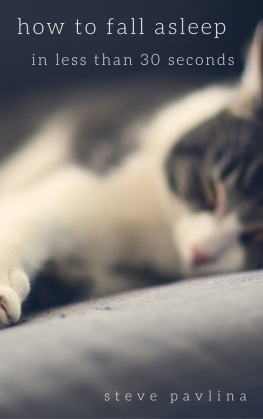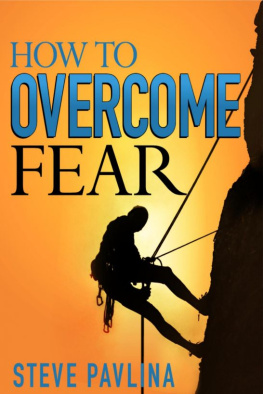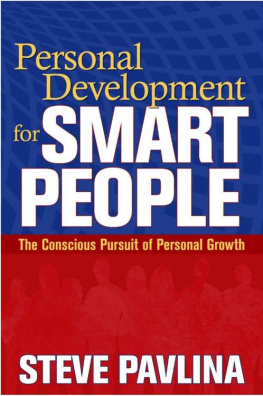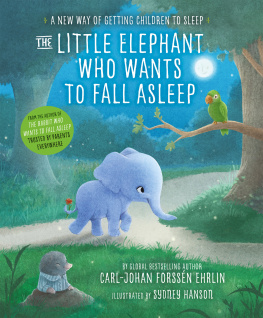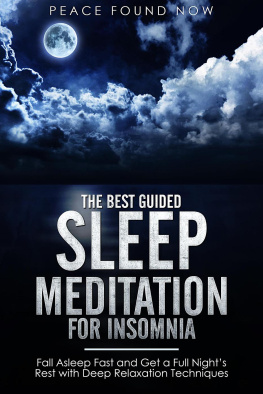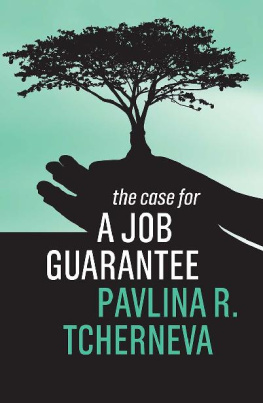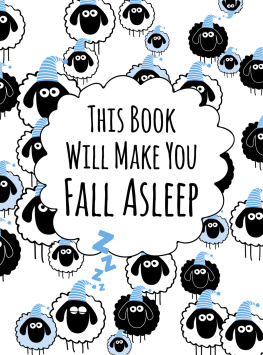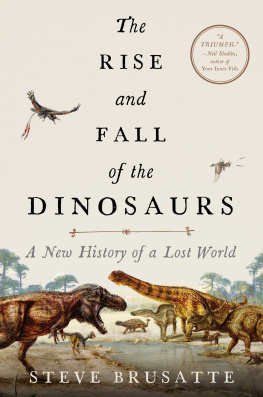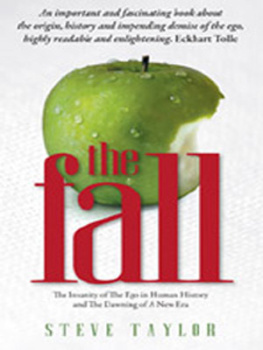Steve Pavlina - How to Fall Asleep in Less Than 30 Seconds
Here you can read online Steve Pavlina - How to Fall Asleep in Less Than 30 Seconds full text of the book (entire story) in english for free. Download pdf and epub, get meaning, cover and reviews about this ebook. genre: Romance novel. Description of the work, (preface) as well as reviews are available. Best literature library LitArk.com created for fans of good reading and offers a wide selection of genres:
Romance novel
Science fiction
Adventure
Detective
Science
History
Home and family
Prose
Art
Politics
Computer
Non-fiction
Religion
Business
Children
Humor
Choose a favorite category and find really read worthwhile books. Enjoy immersion in the world of imagination, feel the emotions of the characters or learn something new for yourself, make an fascinating discovery.
- Book:How to Fall Asleep in Less Than 30 Seconds
- Author:
- Genre:
- Rating:5 / 5
- Favourites:Add to favourites
- Your mark:
- 100
- 1
- 2
- 3
- 4
- 5
How to Fall Asleep in Less Than 30 Seconds: summary, description and annotation
We offer to read an annotation, description, summary or preface (depends on what the author of the book "How to Fall Asleep in Less Than 30 Seconds" wrote himself). If you haven't found the necessary information about the book — write in the comments, we will try to find it.
How to Fall Asleep in Less Than 30 Seconds — read online for free the complete book (whole text) full work
Below is the text of the book, divided by pages. System saving the place of the last page read, allows you to conveniently read the book "How to Fall Asleep in Less Than 30 Seconds" online for free, without having to search again every time where you left off. Put a bookmark, and you can go to the page where you finished reading at any time.
Font size:
Interval:
Bookmark:
How to Fall Asleep in Less Than 30 Seconds
Steve Pavlina
Chapter 1:
Chapter 2:
Chapter 3:
Chapter 4:
Does it take you a while to fall asleep at night? Do you find your mind dwelling on various thoughts before youre able to finally drift off and relax into sleep? Do you find that you just arent sleepy enough when its time for bed?
Realize that if it takes you 15 minutes on average to fall asleep each night, thats more than 91 hours per year that youre wasting. This is the equivalent of spending more than two 40-hour workweeks just lying in bed waiting to fall asleep.
And if you have insomniac tendencies and take more than an hour to fall asleep each night, youre spending more than nine 40-hour weeks on that pointless activity every year. Thats a tremendous amount of wasted time.
If youd like to change this situation, keep reading. Ill explain the details and share a process for training your brain to fall asleep almost instantly when youre ready to go to bed.
First, if you drink coffee, tea (including green tea and white tea), yerba mate, cola, or any caffeinated beverages on a semi-regular basis, this method wont work very well at all, so I strongly recommend that you get off all caffeine for at least 2 weeks before you attempt to make improvements in this area. Read the chapter if you need help with that. I also advise that you drop chocolate during this time as well, including cocoa and cacao, since those contain stimulants too.
Even a small cup of coffee in the morning can disrupt your ability to fall asleep quickly at night. You may also sleep less restfully, and youll be prone to awaken more often throughout the night. Consequently, you may wake up tired and need extra sleep.
Simply eliminating all caffeine from your diet can improve your sleep habits tremendously. So if you havent already done that, please do that first before you attempt the training method I explain later in this article.
If you really love your caffeine though, the good news is that its okay to add it back once youve gone through this adaptation training. It will still disrupt your sleep a bit, but once youve mastered the habit of being able to fall asleep in 30 seconds or less, then most likely youll still be able to continue the habit even if you consume some caffeine during the day.
A decade ago it might have taken me 15-30 minutes to fall asleep most nights. Sometimes it would take more than an hour if I had a lot on my mind. And very occasionally I could fall asleep within 5 minutes or less if I was very sleepy.
Today its fairly normal for me to fall asleep within 30 seconds or less, and often Im able to fall asleep in less than 1 second. My best is probably around 1/4 of a second.
How do I know this? Because I have a witness that tells me how long I was out. I also know that I was sleeping because I awaken with the memory of a dream. If my sleep time is only a second or a fraction of a second, then its obviously a very short dream. Some time dilation occurs though, so a 1-second dream may feel significantly longer perhaps as if 5-10 seconds have passed within the dream world.
Is this narcolepsy? No, narcolepsy is very different. I dont just fall asleep at odd times throughout the day, and I dont have excessive daytime sleepiness. Most days I dont take any naps. One thing I do have in common with narcoleptics is that I can start having dreams immediately when I fall asleep, whereas most people dont enter the dream state for at least an hour. I regard this as a positive adaptation though, not a problem or defect.
I cant normally force myself to sleep when Im not at all sleepy. But when Im ready to go to sleep, I can go to sleep very quickly without wasting time trying to fall asleep.
Im not able to do this 100% perfectly. If I have a stressful day and theres a lot on my mind at night, I may find it more difficult to relax and go to sleep. But most of the time under normal, average conditions, I can get to sleep within 30 seconds or less.
I reached this point not by the exertion of conscious will but rather through a long-term process of sleep training. So dont think that theres some mental trick that you can use right away to make this happen instantly. However, once youve trained yourself to this point, the process is effortless. Youll be able to do it automatically. It will be no more difficult than blinking.
The training process may take a long time months or even years, depending on how far you want to go but its not at all difficult, and it neednt take a serious time commitment. In fact, the training will most likely save you a significant amount of time. The only challenging part is maintaining consistency long enough to get results.
First consider that its possible for you to fall asleep faster. Have you ever been really tired and sleepy at the end of a day, and you fell asleep very quickly after getting into bed? Have you ever drifted off while watching a movie or reading a book? Have you ever fallen asleep within less than 2 minutes after lying down? If youve done it before, then consider the possibility that your brain already knows how to fall asleep quickly, and if you create the right conditions, then youre capable of doing this again. You just need to train your brain to do this more consistently.
The main reason that you arent falling asleep faster is that you havent trained your brain to do so. You may be able to reach that point eventually, but youre not there yet. Similarly, you may be able to do the splits if you engage in flexibility training, but in the absence of such training, you probably wont be able to do the splits at all.
If you want to fall asleep faster, you must incentivize your brain to drop all other activity and immediately transition into sleep when you desire to do so. That is the essence of this approach. If there are few consequences for a lazy approach to falling asleep, then your brain will continue to be lazy and inefficient in this area. You havent given it a good enough reason to select more efficient behaviors.
Your brain is always active, even during deep sleep, and it operates in different modes of consciousness, including beta (waking), alpha, theta, and delta phases. When you lie in bed waiting for sleep, youre waiting for your brain to switch modes. An untrained brain will often take its own sweet time making the necessary state change. So you may dwell on other thoughts or toss and turn or just lie awake until your brain is finally ready to transition. This is a common experience. Without incentives to become more efficient, your brain will remain naturally lazy by default.
Your conscious mind might very much like to go to sleep, but it isnt in charge. Your subconscious determines when you fall asleep. If your subconscious mind is in no hurry to fall asleep, then your conscious mind will have a hard time forcing it. In fact, your subconscious may continue to bubble up thoughts and ideas to occupy your conscious mind, distracting you with mental clutter instead of letting you relax and slide into sleep.
A trained subconscious mind is obedient and fast. When the conscious mind says to sleep, the subconscious activates sleep mode immediately. But this only works if youre feeling at least partially sleepy. If the subconscious doesnt agree with the need for sleep, it can still reject the request.
The process Ill share next will teach your brain that putzing around isnt an option anymore and that when you decide to go to sleep, it needs to transition immediately and without delay.
Font size:
Interval:
Bookmark:
Similar books «How to Fall Asleep in Less Than 30 Seconds»
Look at similar books to How to Fall Asleep in Less Than 30 Seconds. We have selected literature similar in name and meaning in the hope of providing readers with more options to find new, interesting, not yet read works.
Discussion, reviews of the book How to Fall Asleep in Less Than 30 Seconds and just readers' own opinions. Leave your comments, write what you think about the work, its meaning or the main characters. Specify what exactly you liked and what you didn't like, and why you think so.

